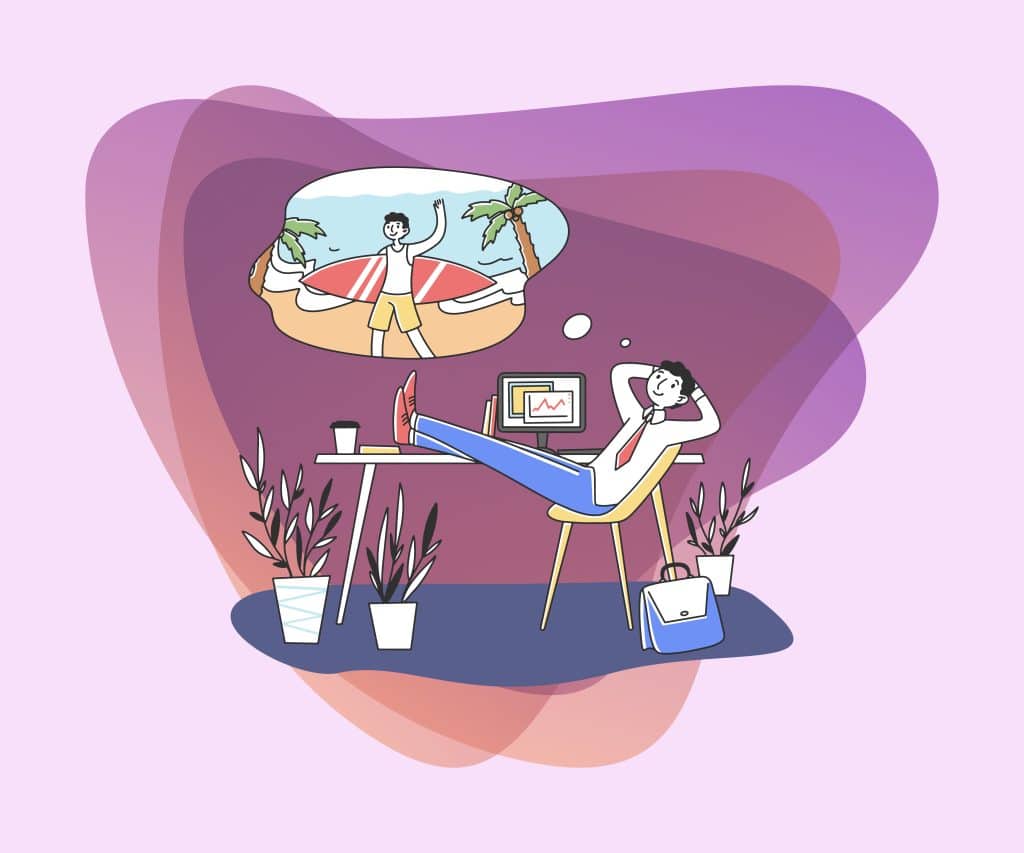Minimalist Approaches to Everyday Living
Samantha Lee August 14, 2025
Minimalism, once a niche lifestyle, has evolved into a global trend focused on simplicity, sustainability, and intentional living. In a world constantly bombarded by consumerism and distractions, the minimalist approach offers a refreshing antidote—a chance to clear away the clutter, both physically and mentally. This trend isn’t just about reducing possessions; it’s about creating a life that’s more focused on what truly matters.
From decluttering your home to streamlining your daily routines, minimalist approaches to everyday living have profound effects on personal well-being and happiness. This article explores how minimalist living can improve your life, with practical tips on embracing minimalism in various aspects of your day-to-day routine.

What is Minimalism?
At its core, minimalism is about focusing on what adds value to your life and removing what doesn’t. The idea is simple: own less, live more. Minimalism encourages you to let go of excess stuff, distractions, and obligations, making space for more meaningful activities and relationships. According to Joshua Becker, the founder of Becoming Minimalist, minimalism is “the intentional promotion of the things we most value and the removal of anything that distracts us from it.”
Minimalism can be applied in multiple areas, such as:
- Physical space: Decluttering and organizing your home to reduce visual chaos.
- Mental space: Reducing stress by focusing on what’s truly important and letting go of unnecessary worries.
- Time: Streamlining schedules and prioritizing time for things that matter most.
Minimalism isn’t about deprivation or asceticism—rather, it’s about gaining freedom by simplifying your life.
1. Decluttering Your Home: The Foundation of Minimalist Living
One of the first steps in adopting a minimalist lifestyle is decluttering your living space. A clutter-free environment can improve mental clarity, reduce stress, and increase your productivity. A study from Princeton University Neuroscience Institute found that physical clutter negatively affects your ability to focus and process information, creating a sense of mental overload. Reducing clutter can create a more peaceful, organized home, making it easier to relax and focus on tasks.
How to Declutter Your Home
- Start Small: Begin with one room or even a specific area, such as a drawer or closet. Don’t try to do everything at once.
- The Four-Box Method: For each item, place it in one of four boxes: keep, donate, sell, or toss. Be honest with yourself about what you truly need or love.
- One-In, One-Out Rule: To prevent future clutter, adopt the habit of getting rid of one item for every new item you bring into your home.
Practical Tip: To make decluttering more manageable, set aside just 10-15 minutes a day for organizing one area at a time. Over time, you’ll see significant progress without feeling overwhelmed.
Key Takeaway: Decluttering not only creates a clean and organized space but also helps reduce stress and promotes clarity and focus.
2. Simplifying Your Daily Routines
Minimalism is about simplifying the non-essential aspects of your life, including your daily routines. Streamlining your daily tasks helps you conserve energy, reduce decision fatigue, and focus on what truly matters. By simplifying your schedule, you can dedicate more time to self-care, hobbies, and meaningful activities.
How to Simplify Your Daily Life
- Morning Routine: Keep your morning routine simple and intentional. Prepare the night before by organizing your clothes, meals, and any items you need for the day.
- Meal Prep: Plan meals ahead of time to avoid decision fatigue and reduce the stress of last-minute meal planning. Choose simple, nutritious recipes that don’t require a lot of ingredients.
- Time Blocking: Allocate specific blocks of time for tasks to prevent multitasking and improve focus. Use tools like Google Calendar or time management apps to block time for work, exercise, and relaxation.
Practical Tip: Use the “two-minute rule”: If something can be done in two minutes or less (such as answering an email or washing a dish), do it right away to prevent small tasks from piling up.
Key Takeaway: Simplifying your daily routines frees up mental space and energy, allowing you to focus on more important, fulfilling activities.
3. Embracing Digital Minimalism: Reducing Screen Time and Distractions
In the digital age, it’s easy to become overwhelmed by constant notifications, social media updates, and digital clutter. Digital minimalism is about intentionally using technology to serve your needs without letting it consume your time or attention.
Cal Newport, a computer science professor and author of Digital Minimalism, argues that digital tools should enhance our lives, not control them. He suggests that by embracing a more intentional approach to technology, we can reclaim our focus and live more fulfilling lives.
How to Practice Digital Minimalism
- Declutter Your Devices: Delete unused apps and files. Organize your digital photos, emails, and documents to reduce chaos.
- Limit Social Media Use: Set boundaries for social media use—such as limiting your time to 30 minutes a day or using apps like Freedom or Screen Time to help you stick to these limits.
- Practice Digital Detox: Take regular breaks from screens by setting aside “tech-free” hours, especially in the evenings, to reconnect with offline activities and reduce the impact of blue light on your sleep.
Practical Tip: Unsubscribe from unnecessary email lists and mute group chats or notifications that distract you from more meaningful tasks.
Key Takeaway: By reducing digital distractions, you can focus more on real-world interactions and activities, leading to a calmer, more fulfilling life.
4. Mindful Consumption: Focusing on Quality Over Quantity
Minimalism isn’t just about getting rid of things; it’s about being intentional with what you own and consume. In the modern world, we’re often bombarded with advertising that encourages us to buy more, even when we don’t need it. Mindful consumption is about resisting the pressure to accumulate unnecessary possessions and focusing on quality rather than quantity.
How to Adopt Mindful Consumption
- Buy Less, Choose Wisely: Before making a purchase, ask yourself whether it aligns with your values and truly adds value to your life.
- Invest in Quality: Choose well-made, durable items that will last longer, rather than cheap, disposable products that contribute to waste.
- Embrace Secondhand: Consider buying secondhand or vintage items, which can be more sustainable and unique.
Practical Tip: Implement a 30-day rule for non-essential purchases: if you feel the urge to buy something, wait 30 days before making the purchase. Often, the desire will fade, and you’ll realize the item isn’t as necessary as it seemed.
Key Takeaway: Mindful consumption reduces waste and clutter, allowing you to focus on the things that genuinely enhance your life.
5. The Environmental Impact of Minimalist Living
Minimalism also has significant environmental benefits. By consuming less, reducing waste, and embracing more sustainable habits, minimalist living aligns with the principles of environmental responsibility. A report from the Environmental Protection Agency (EPA) highlights that reducing consumption and waste can help mitigate climate change and promote sustainability.
How Minimalism Benefits the Environment
- Less Waste: By purchasing fewer disposable items and embracing secondhand goods, you contribute less to landfills.
- Lower Carbon Footprint: Minimizing your consumption of goods—especially energy-intensive items like electronics and clothing—reduces your overall environmental impact.
- Sustainable Living: Choosing products made from eco-friendly materials and supporting sustainable brands aligns your lifestyle with environmental responsibility.
Practical Tip: Look for brands that prioritize sustainability, such as those that use recycled materials, offer minimal packaging, or promote ethical labor practices.
Key Takeaway: Minimalism not only benefits your personal well-being but also has a positive impact on the planet by reducing waste and promoting sustainable practices.
Conclusion: Simplifying Your Life for Greater Fulfillment
Minimalist approaches to everyday living aren’t about sacrificing the things you love—they’re about removing excess, creating space for what matters, and leading a more intentional, fulfilling life. Whether you’re decluttering your home, simplifying your routines, or embracing mindful consumption, minimalism offers a way to reduce stress, improve focus, and increase well-being.
By making intentional choices about what to keep and what to let go of, you create a life that aligns with your values and goals. With the growing trend of minimalist living, you can also contribute to a more sustainable future, making the world a better place for generations to come.
Reference
- 15 Science-Backed Benefits of Minimalism, https://modernminimalism.com
- A Digital Minimalism Guide, https://www.reddit.com
- Favorite benefits of minimalism for you? https://www.reddit.com







